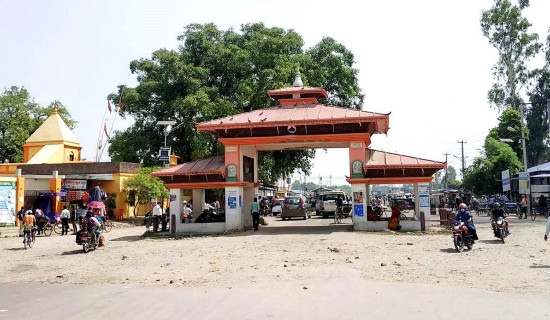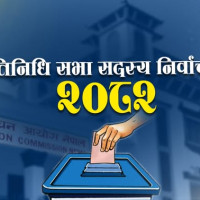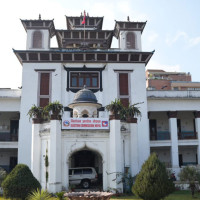- Thursday, 26 February 2026
We have initiated door-to-door services: Subba
Chhathar Jorpati Rural Municipality in Dhankuta district has a population of approximately 18,000. Agriculture is the mainstay of this rural municipality. However, many locals have migrated to other places for better facilities like health, education, employment and drinking water. Preventing migration and developing infrastructure are the main challenges here. In this regard, our Hile correspondent Kabiraj Ghimire interviewed rural municipality Chairman Chhatra Subba, who was first elected in 2022 local level election.
How has your experience been so far?
We have completed the first and second years. In the first year, we gained experiences. In the second year, we tried to work according to our ideas but faced various problems, including budget issues. We don’t have our internal resources, and the central and provincial governments are unable to provide budget that meets our demands.
What are the main achievements?
The main achievement is that we have succeeded in preventing some people from migrating to other cities and have managed to attract others here. We realised that we need to work closely with people to solve their problems and give them happiness. Therefore, we have initiated door-to-door services. Additionally, we have focused on agriculture and education based on people’s priorities and have started constructing a basic hospital and an industrial village.
What challenges have you faced?
There are many challenges. The rural municipality has limited resources. Our internal income is not significant, but the people's expectations are high. We have not been able to meet their expectations fully. But we have taken this challenge as an opportunity and are working to meet people’s expectations within a few years. Besides this, a main challenge is also to retain the people of the lower areas here, which means preventing migration. Agriculture needs to be commercialised.
What are the needs of this rural municipality?
There are many needs. This area is particularly ahead in agriculture, especially in vegetable farming. During the monsoon, not only the Tarai region but also the neighboring Indian markets depend on our vegetable produce. Despite this, there are problems like sometimes not finding a market and sometimes not getting good price.
It is necessary to manage this and we are trying our best. But we need the provincial and central governments to address this. Similarly, modernisation in agriculture is very necessary. There is a need for drinking water and irrigation. It is necessary to make rural roads sustainable. We also need to develop tourism. We aim to provide basic healthcare services here so that people do not have to go to Dharan for minor treatments.
How are you utilising internal resources?
Our internal income is negligible. It is not enough to do anything other than hire few employees.
How is the status of cooperation with the federal and provincial governments?
There is cooperation. We make our requests to the federal and provincial governments, but we haven't received what we asked for. This could be due to political bias or the instability of the government. Meanwhile, they have cut down budget for big projects.
What makes your rural municipality different from others?
We have implemented some new initiatives that are different from others. For example, we have continued the programme of gifting cows to new residents. To prevent migration, we are implementing self-sufficiency programmes in agriculture.
Additionally, we have provided health insurance for all citizens by paying half the premium. We also offer a monthly allowance to post-partum women. We are in the process of sourcing water from the Tamor River and other rivers to improve drinking water supply.
What do you aim for the rural municipality before your tenure ends?
I aspire and am determined to make it a prosperous rural municipality with good governance and equipped with education, health, tourism, agriculture and necessary infrastructure. I want to increase the income sources of the people, ensure sustainable roads and develop tourism. If the provincial and federal governments cooperate, we can achieve this, but they are not in a position to provide the budget we demand for. Let’s see how much we can accomplish.














